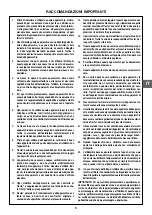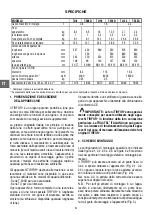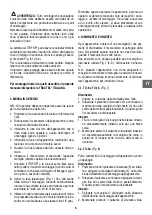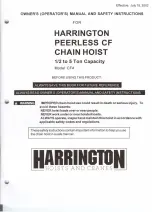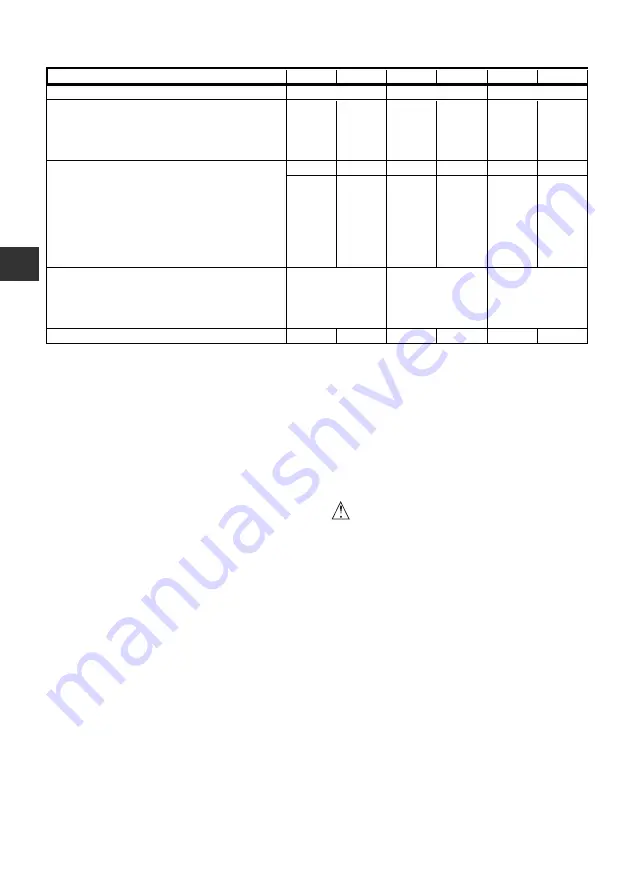
1. INTRODUCTION AND DESCRIPTION OF EQUIP-
MENT
The TIRFOR
®
machine is a hand-operated lifting and
pulling machine. It is versatile, portable and multi-pur-
pose, not only for pulling and lifting but also for lowering,
tensioning and guying.
The originality of the TIRFOR
®
machine is the principle
of operation directly on the wire rope which passes
through the mechanism rather than being reeled onto a
drum of a hoist or conventional winch. The pull is
applied by means of two pairs of self-energised jaws
which exert a grip on the wire rope in proportion to the
load being lifted or pulled. A telescopic operating lever
fitted to either the forward or the reverse lever transmits
the effort to the jaw mechanism to give forward or rever-
se movement of the wire rope.
The machine is fitted with a hook or anchor pin, depen-
ding on the model, so that it can be secured quickly to
any suitable anchor point.
TIRFOR
®
machines, intended for lifting and pulling
materials, are available in two ranges each with three
models of different capacities :
– T-500D range for light duty applications (with safety
release catch),
– TU range for heavy duty applications (with safety
release catch).
Each machine is supplied with a telescopic operating
handle, and usually with a 20 m standard length of spe-
cial TIRFOR
®
wire rope fitted with a safety hook and
wound onto a metal reeler. Longer or shorter lengths of
wire rope are available on request.
This manual together with a guarantee card are sup-
plied with each machine, as well as the CE declaration
of conformity.
IMPORTANT : TIRFOR
®
wire rope has been
specially designed to meet the particular require-
ments of the TIRFOR
®
machine.
The manufacturer does not guarantee the safe ope-
ration of machines used with wire rope other than
TIRFOR
®
wire rope.
2. RIGGING ARRANGEMENTS
Various ways of rigging are shown in Figs. 2.1, 2.2, 2.3
and 2.4. Figs. 4 and 5 show particular arrangements
(one forbidden and the other recommended).
The machine may be anchored to a fixed point with the
wire rope travelling towards the machine (Figs. 2.1, 2.2,
2.3), or travel along the wire rope, with the load, the wire
rope itself anchored to a fixed point
(Fig. 2.4).
In example 2.2, the maximum working load of the pulley
and the anchor point should be equal to or greater than
twice the load.
N.B. Whatever the rigging arrangement, and if the
machine is anchored directly to a fixed point, ensure
4
GB
TECHNICAL DATA
* Including end fittings of the wire rope.
** One complete cycle of the operating lever at maximum working load.
MODEL
TU-8
T-508D
TU-16
T-516D
TU-32
T-532D
Maximum working load
t
Weight :
4
2
7
2
5
,
3
1
8
1
6
,
6
4
,
8
g
k
e
n
i
h
c
a
m
telescopic operating handle
kg
1
1
2,4
2,3
2,4
2,3
standard 20 m of wire rope, complete
kg
6,1
6,1
13,1
13,1
26,6
26,6
Total weight of standard equipment
kg
15,5
13,7
33,5
28,9
56
52,9
Machine dimensions :
0
2
6
6
7
6
0
3
5
0
6
6
0
2
4
7
2
5
m
m
h
t
g
n
e
l
length with optional hook
mm
–
550
–
650
860
840
5
5
3
0
3
3
5
1
3
0
3
3
0
5
2
5
6
2
m
m
t
h
g
i
e
h
0
3
1
6
5
1
7
2
1
0
4
1
9
9
8
0
1
m
m
h
t
d
i
w
telescopic handle : closed/extended
cm
51/77
40/69
68/119
65/115
68/119
65/115
TIRFOR wire rope
diameter
mm
guaranteed breaking strain*
daN
weight per meter
kg
Rope travel (forward/reverse)**
mm
70/76
46/63
56/70
42/57
30/48
18/36
4000
8000
16000
0,25
0,5
1
0,8
1,6
3,2
8,3
11,5
16,3

















